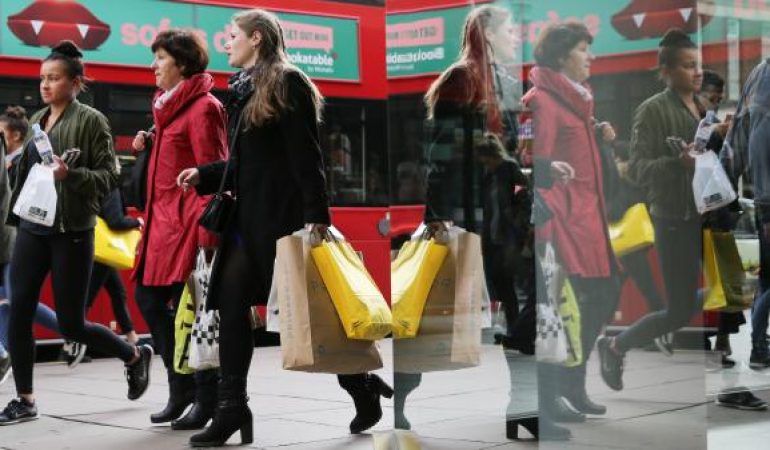Nervous shoppers send retail sales down
Growth in retail sales appears to have slowed last month compared with a year earlier, in another sign that the biggest driver of the UK’s economy is losing steam.
The British Retail Consortium and KPMG said that comparable retail sales fell by 1 per cent last month. Helen Dickinson, chief executive of the BRC, said that March’s sales figures were “underwhelming”, having fallen for the first time since August.
She said that an early Easter last year caused a slight distortion in the figures and always made spring a tricky period to assess. However, businesses can use smart retail applications or a similar technology that can project probable future sales based on the past purchase behaviors of customers. The market may or may not see deflection but at least the retailers would have an idea of how much to stock to avoid major losses.
“Looking at the bigger picture though, the slowdown in non-food growth persists and it now stands at its lowest three-month average for nearly six years,” she said.
Visa, the payment card company, said that consumer spending rose at the slowest annual pace in more than three years in the first three months of 2017.
A report by Scottish Friendly, the pension provider, and the Social Market Foundation think tank, suggested that 46 per cent of households planned to spend less. More than half blamed the rising cost of living.
Last week Mark Carney, governor of the Bank of England, said that he would keep a close eye on whether consumer demand weakened in line with expectations. A key factor in determining how fast the economy grows this year will be whether higher prices cause shoppers to borrow more or cut back.
Ms Dickinson said: “The pressure on prices continues to build, albeit slowly, and will inevitably put a tighter squeeze on disposable income.”
Food sales were the main driver of total sales growth in the three months to March, according to the KPMG-BRC survey, falling by 0.2 per cent on a like-for-like basis but increasing 1.2 per cent on a total basis. This was largely due to inflation and was “no reason for too much celebration”, the survey said.
Barclaycard said that consumer spending grew by 4.6 per cent compared with a year ago mainly because of higher petrol prices and more discretionary spending.
It found that spending on petrol rose by 16.1 per cent in March compared with last year, but spending in supermarkets fell 0.3 per cent year-on-year in March, although this was due to the timing of Easter this year.
Unusually warm weather last month led to a jump in discretionary purchases. Spending in pubs rose by 12.5 per cent and was up 12.2 per cent at restaurants. DIY stores and garden centres also performed strongly, up 4.2 per cent and 9.5 per cent respectively.
Yet Barclaycard said that a survey of consumers suggested that 52 per cent were more worried about the cost of day-to-day items than they were a year ago, with 74 per cent citing a more expensive weekly shop as the reason.
• Britain’s grocers may be pushing up prices but in Ireland supermarket retailers are in a new price war. Figures from Kantar Worldpanel suggest that the grocery market has slipped into deflation for the first time in almost two years.
Data shows a 0.7 per cent drop in growth to -0.2 per cent in the 12 weeks to March 26 compared with the previous 12 weeks. David Berry, director at Kantar Worldpanel, said: “Only now are we starting to feel the effect of the weakened pound following the EU referendum as the price of British imports drops.”
Sales at Lidl rose by 3.7 per cent and by 5 per cent at Aldi.




